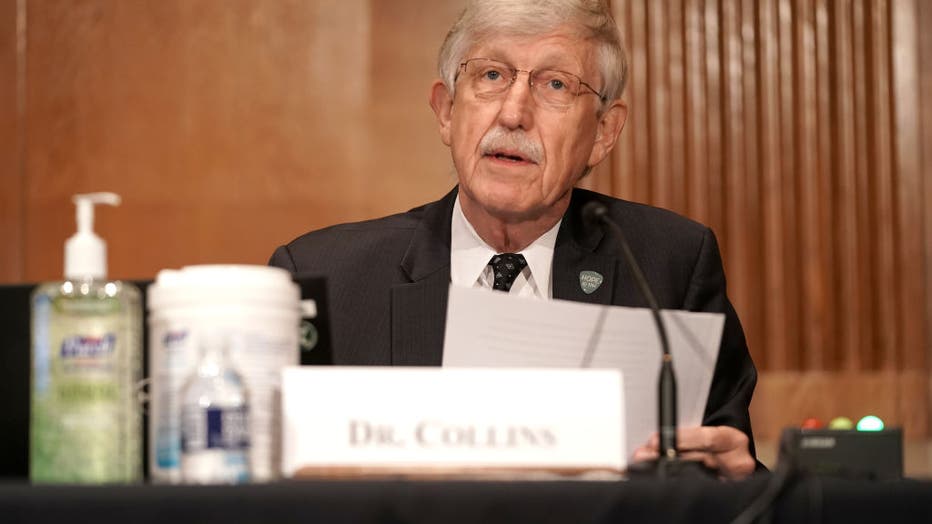NIH director Francis Collins to step down by end of year
NIH Director Dr. Francis Collins and Dr. Luciana Borio, a member of President-elect Joe Biden’s coronavirus task force speak on a COVID-19 panel
Before being selected to join the task force by Biden, Borio worked as vice president of technical staff at the In-Q-Tel strategic investment firm. Until last year, she was a biodefense specialist on the National Security Council under the Trump administration.
WASHINGTON - Dr. Francis S. Collins, the director of the National Institutes of Health, announced his decision to step down by the end of 2021 after having led the research center for more than a decade — including during the global COVID-19 pandemic.
"I am proud of all we’ve accomplished. I fundamentally believe, however, that no single person should serve in the position too long, and that it’s time to bring in a new scientist to lead the NIH into the future," Collins, 71, said in a statement posted Tuesday on the NIH’s website.
Based in Bethesda, Maryland, and a part of the Department of Health and Human Services, the NIH is the nation’s medical research agency and operates more than two dozen institutes and centers. It lays claim to being the largest supporter of biomedical research in the world.
Collins, a physician-geneticist, was appointed director in 2009 by President Barack Obama and was asked to remain in that post by Presidents Donald Trump and Joe Biden. He is the only presidentially-appointed NIH director to serve under multiple administrations.

FILE - Dr. Francis Collins, Director of the National Institutes of Health, gives an opening statement during a Senate Health, Education, Labor, and Pensions Committee hearing to discuss vaccines and protecting public health during the coronavirus pan
A statement from Biden called Collins "one of the most important scientists of our time." Biden noted Collins’ work in helping to finish the sequencing and mapping of the human genome "to unlock the mysteries of our DNA," which earned him the Presidential Medal of Freedom from former President George W. Bush.
Collins worked closely with then-Vice President Biden to launch the Cancer Moonshot Initiative, aimed at accelerating cancer research, making more therapies available, and improving the ability to prevent and detect cancer at an early stage. Biden lost his son, Beau, a former Delaware attorney general, to cancer in 2015.
"After I was elected president, Dr. Collins was one of the first people I asked to stay in his role with the nation facing one of the worst public health crises in our history," Biden said, referring to the ongoing coronavirus pandemic. "I was grateful he answered the call to serve even though it was asking him to stay on the job longer than anyone in NIH history. Today, I understand his decision to step down from his post at the end of this year after an incredible and consequential tenure."
Collins previously told the Washington Post that he had decided not to stay too long into the Biden administration and was confident that the NIH's role in developing therapeutics, tests and vaccines for the coronavirus had reached "a pretty stable place."
Collins garnered broad bipartisan Congressional support for research, increasing the NIH’s budget by 38% during his 12-year leadership.
He also proposed and established several initiatives for many pressing health issues in America, including Alzheimer’s disease, cancer, opioid use, rare disease, as well as the COVID-19 pandemic.
Collins previously served as director of NIH's National Human Genome Research Institute from 1993-2008 and led the international Human Genome Project, which in 2003 completed a finished sequence of the human DNA instruction book.
RELATED: Fauci, Collins, other top health officials publicly receive 1st dose of Moderna COVID-19 vaccine
This story was reported from Cincinnati. The Associated Press contributed.

